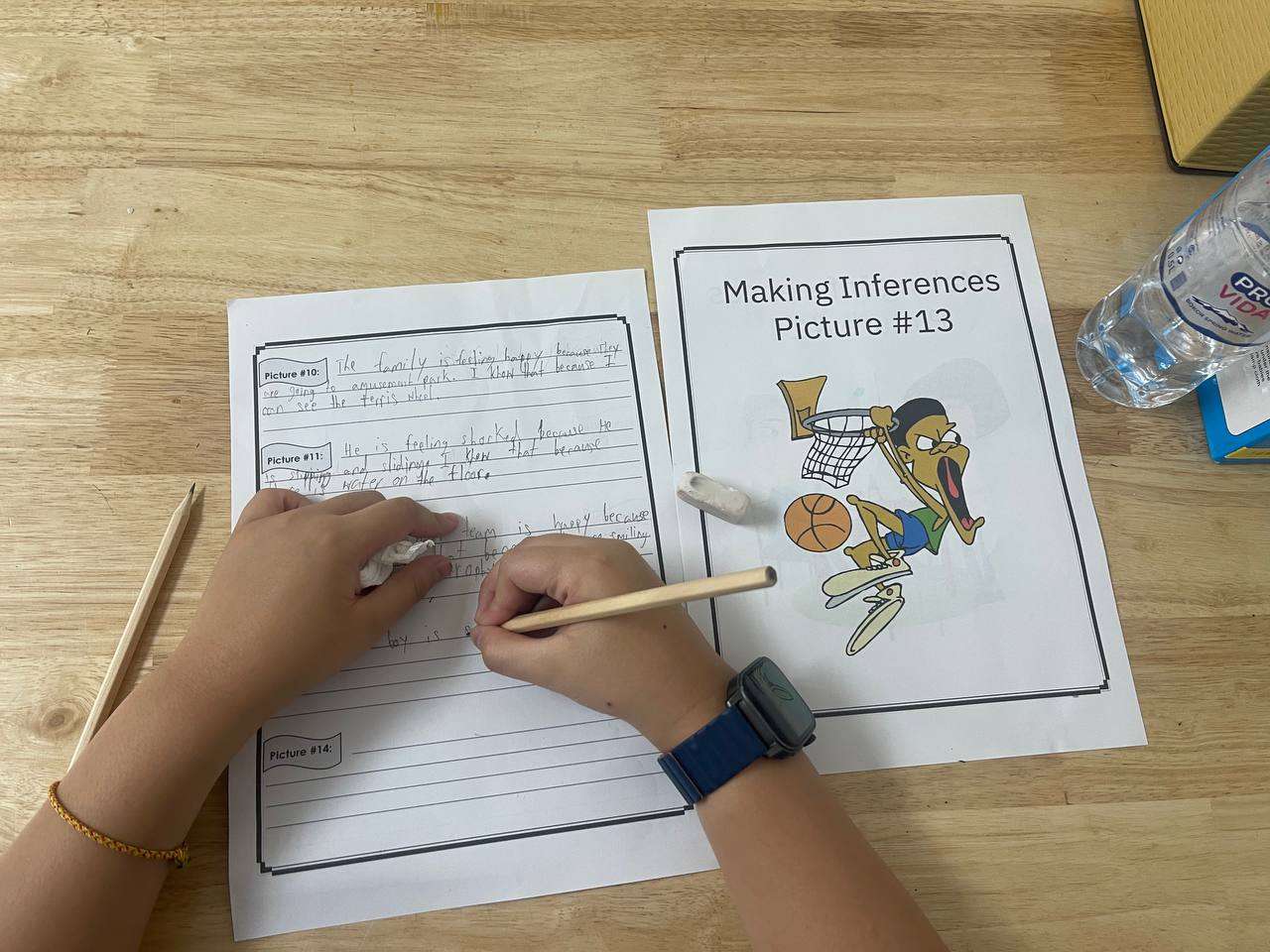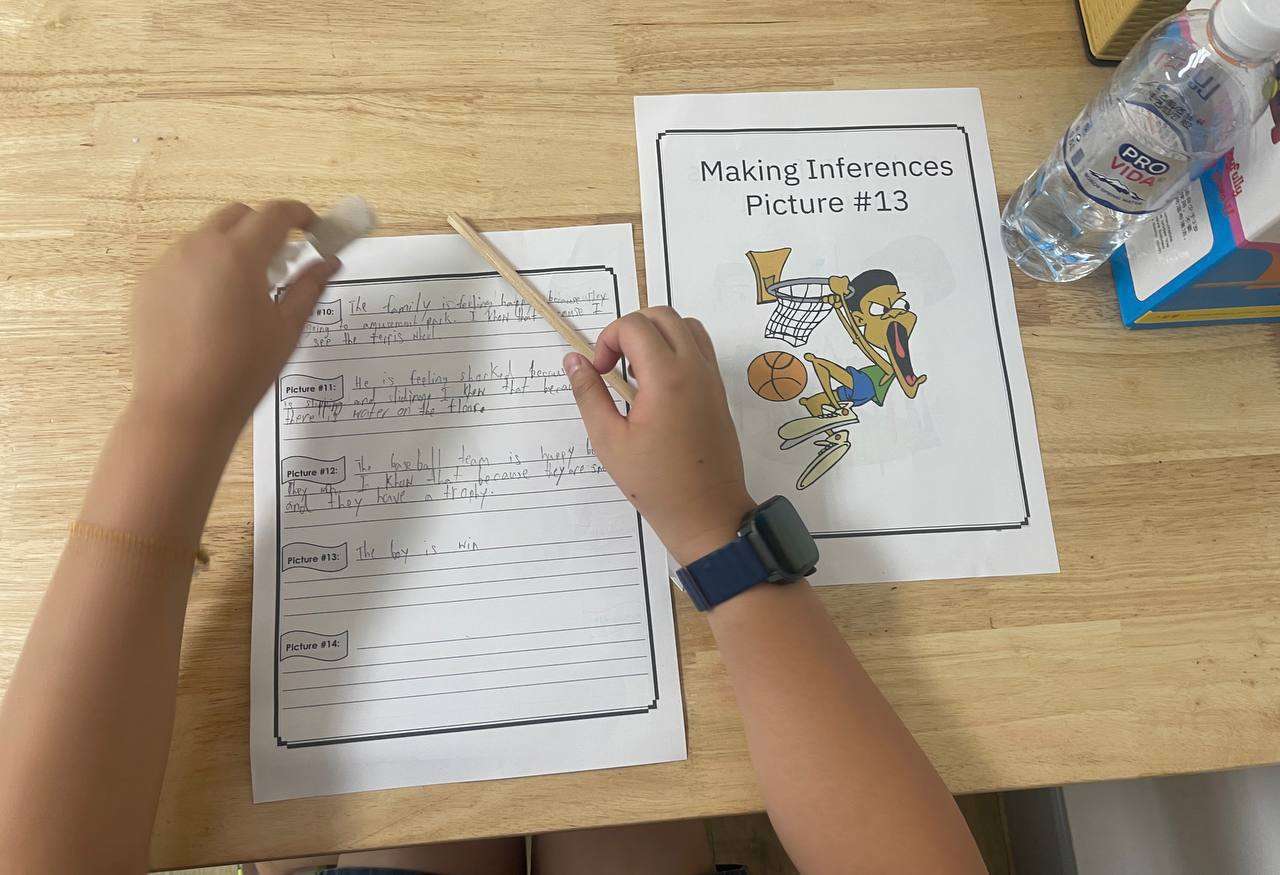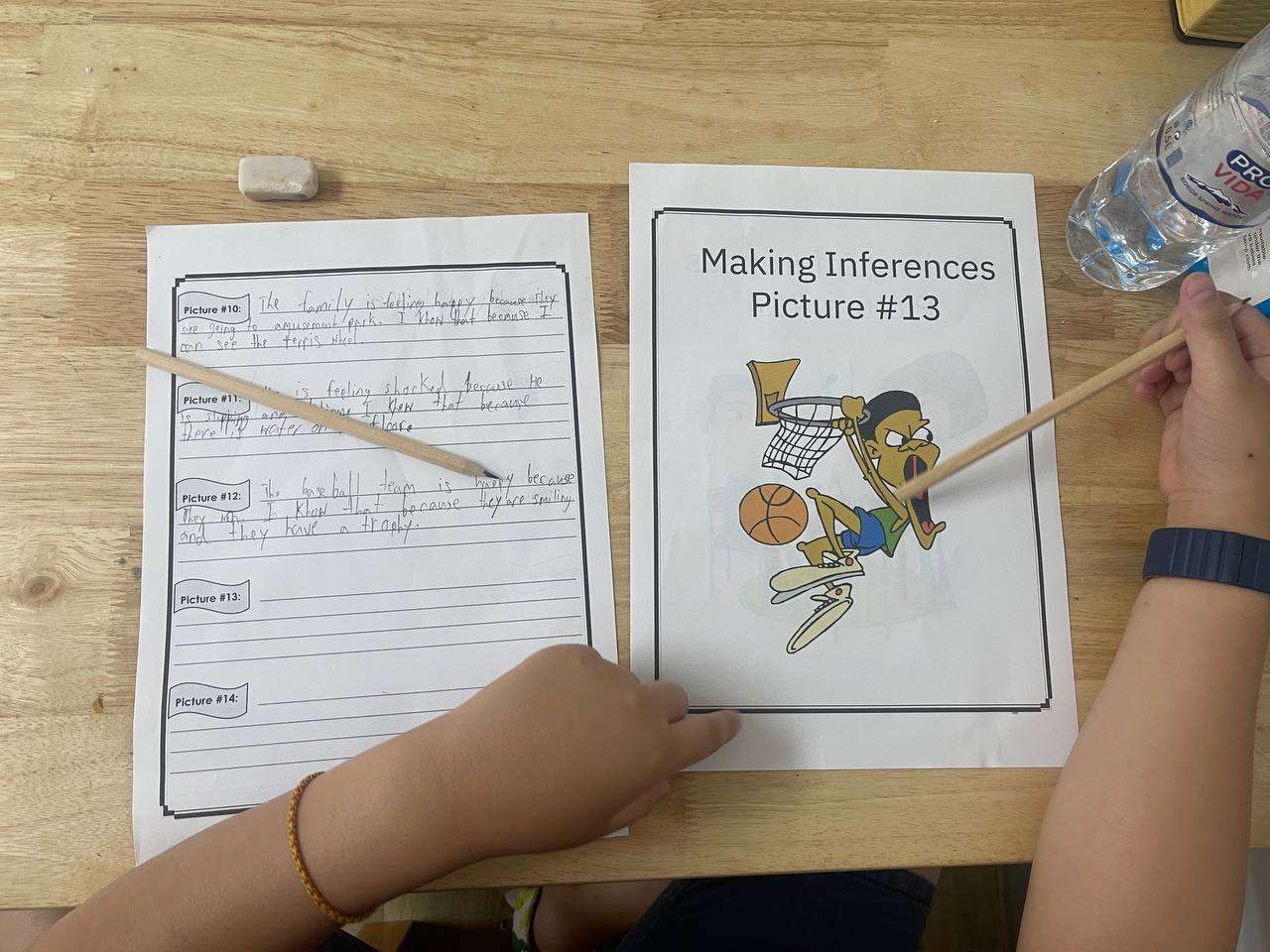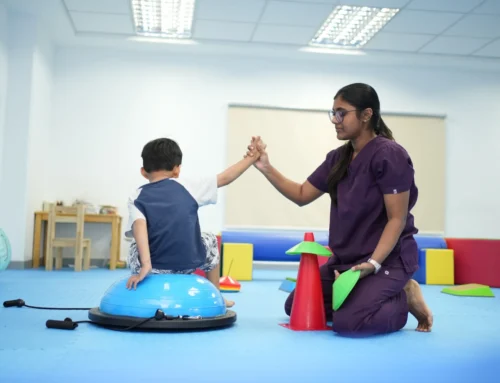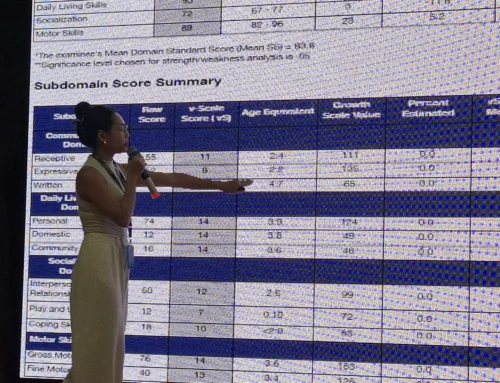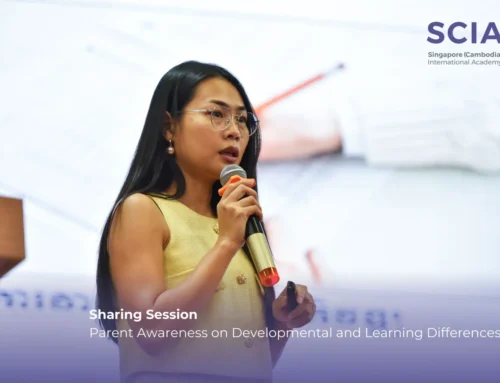At OrbRom Center, we design lessons that go beyond memorizing facts. One powerful skill we focus on is making inferences—helping children read between the lines, connect clues, and explain why something might be happening. This skill supports reading comprehension, problem solving, and everyday communication.
Why Making Inferences Matters
Children often understand literal details but struggle with hidden meanings. For example, a picture might show a child smiling at a basketball hoop. The literal detail is “the boy is smiling,” but the inference could be “the boy is happy because he scored a basket.” Learning to make inferences helps children:
-
Strengthen comprehension in reading and storytelling.
-
Develop logical thinking and reasoning skills.
-
Improve expressive language by explaining why something happens.
-
Connect classroom learning to real-world situations.
How We Teach Inference Skills
At OrbRom Center in Phnom Penh, therapists and teachers use structured worksheets, visual prompts, and guided questioning. A picture is shown, and students are encouraged to answer:
-
What do you see? (Observation)
-
What do you know? (Background knowledge)
-
What do you think is happening? (Inference)
This gradual approach allows children to move from surface-level description to deeper understanding. Activities like these also support children with language and communication challenges, including those with autism, ADHD, or dyslexia.
Strategies Parents Can Use at Home
Parents in Phnom Penh can reinforce inference skills outside therapy sessions with simple routines:
-
Storytime prompts: While reading, pause and ask, “Why do you think the character is sad?”
-
Daily life clues: In real-life settings, point out body language, weather, or context clues (“She’s holding an umbrella—what does that tell us?”).
-
Games and activities: Puzzles, picture-based tasks, and role-play can sharpen inference skills. Try simple prompts like these puzzle activities or color sorting games.
How OrbRom Center Supports This Learning
Our individualized programs integrate inference training into broader educational goals. Whether through preschool programs or special needs interventions, we ensure children build the foundational reasoning and comprehension skills they need for academic success. For children who may be struggling more significantly, structured assessments help us design the right intervention path.
Conclusion
Teaching children to make inferences is more than a reading lesson—it’s a lifelong thinking skill. At OrbRom Center in Phnom Penh, we use engaging lessons to help children practice noticing details, connecting prior knowledge, and drawing logical conclusions. These skills not only improve academic performance but also prepare children to navigate the world with confidence.
We are the only Preschool specialized on children with special needs in PhnomPenh.
- Internationally qualified teachers
- Cambodia’s largest sensory room
- Outdoor swimming pool
- Covered outdoor playground
📞 Phone: 077.455.993
Telegram Link: https://t.me/OrbRom

